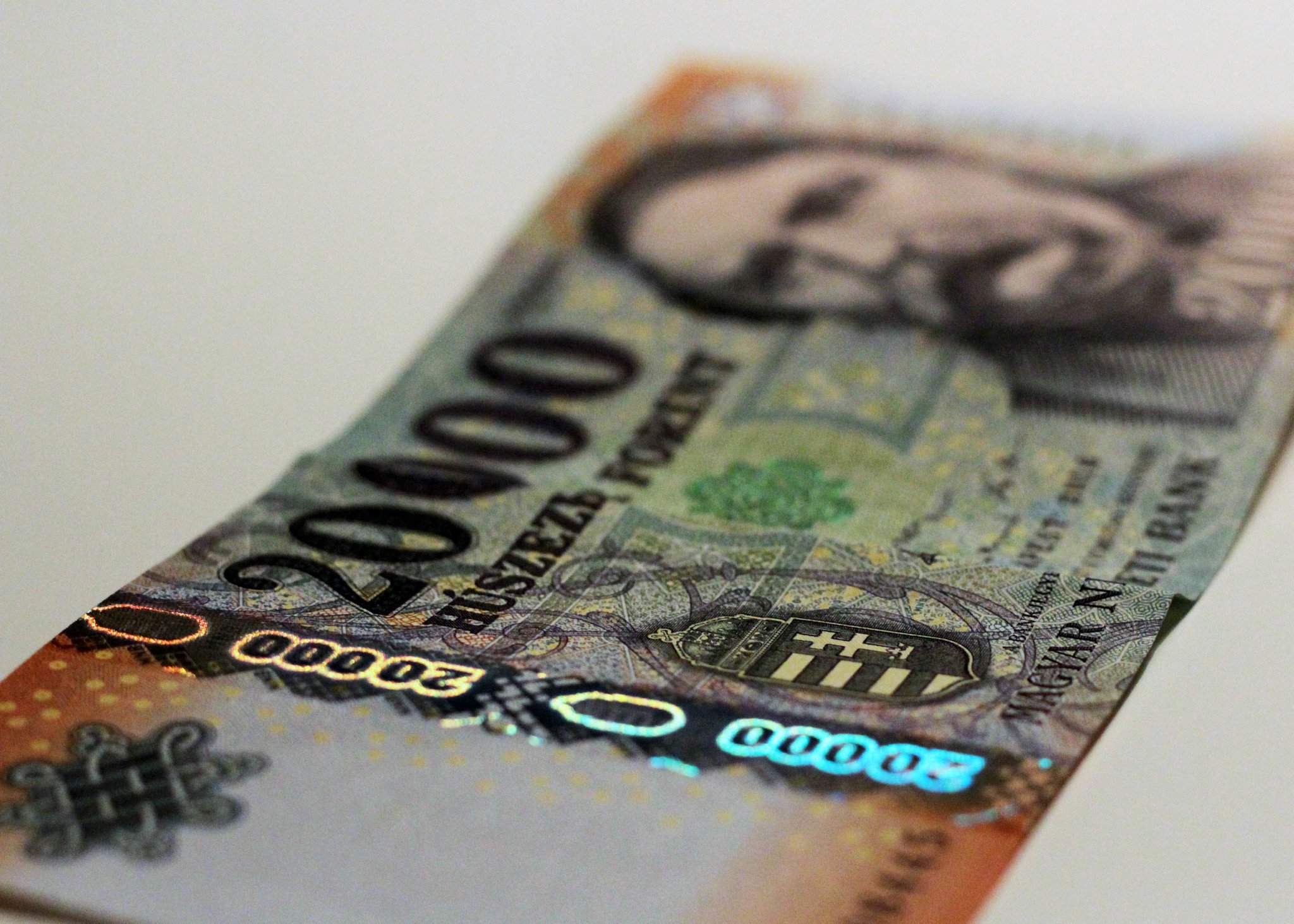The Hungarian forint is plummeting — when will it stop?

The coronavirus pandemic has changed almost everything globally, and it is no different in the case of foreign currency exchange. Unfortunately, the pandemic, which has stayed well over its welcome, had a massive impact on how the Hungarian forint is standing up against other currencies.
Index reports that the exchange rate of HUF has decreased by over 2% in the last month. The overall lowest exchange rate of the Hungarian forint compared to the Euro was around HUF 370 per every one EUR. The HUF has reached that all-time low twice during 2020 and has been already getting close to that in 2021 with HUF 368 per every one EUR last Monday, which was only 0.5% away from the currency’s historical lowest.
The Hungarian forint is not faring good against other currencies either. Compared to the exchange rate of January 1st 2021,
the exchange rate of the forint has decreased by 1.4% compared to the EUR and a shocking 4.5% compared to USD. The 1.1% increase compared to the Swiss franc is among the very few positive changes since then.
Hungarians can be very resourceful. Check out how they have made money on the weak forint.
Index asked two analytics, Zoltán Török from Raiffeisen and Orsolya Nyeste from Erste, who both highlighted that this process is not necessarily only affecting Hungary, but most emerging markets in the EU. The exchange rate of
- the Polish złoty decreased by 2.77%
- the Czech koruna decreased by 2.64%
- and the Hungarian forint decreased by 2.34%.
Orsolya Nyeste said that what is affecting the Hungarian currency are global processes.
“Dollar yields are rising, as are global inflation expectations, so interest rates in Central and Eastern Europe do not seem so attractive to investors,” – she said, adding that generally, the strengthening of the USD – which increased 1.77% compared to the EUR – has a negative effect on the currencies of the emerging markets.

“The announcement of new closures ruins the short-term economic outlook, making it more uncertain. This was also clearly visible in the forint’s exchange rate last year, which reacts strongly to [corona]virus news: if the situation worsens, the forint weakens. If it improves, the forint’s exchange rate will stabilise or even strengthen,” – Orsolya Nyeste said.
According to Zoltán Török, one of the reasons for the bad exchange rate of the HUF could be because financial markets have been trying to predict and adapt to the new, overall higher inflation rates coming worldwide, following a generally low inflation rate period of the past few years.
He also highlighted that generally, Central banks can mitigate the weakening of their own country’s currency by raising interest rates. In the case of Hungary, however, this cannot be done, as due to the past year of combating the coronavirus pandemic, the Hungarian budget is in deficit. This concludes that, unfortunately, the current weakening of the HUF cannot be halted yet.
Despite all bad news, the analysts predict that the HUF will stabilise or even slightly strengthen. Zoltán Török from Raiffeisen says that although the weakening will continue for a bit, after a few months, the HUF will start to strengthen again, even reaching under HUF 360 per EUR,
stabilising somewhere between HUF 350-360 against the EUR. Orsolya Nyeste is not that optimistic; she thinks that the Hungarian forint’s exchange rate will stabilise and keep at HUF 365 against the EUR.
Source: Index.hu


So, the forint is not faring well against some other currencies. Since the only way to curb the virus is to stay the hell home, physically distance with masks on when you must go out for essential shopping every few weeks and to only socially interact with the same small numbers of your familial circle. Those actions also protect the essential workers!!!
Does it matter than for the average person who is not spending money except on essentials if it buys less? After all, if the environment is going to be protected, we know that we have to shop local products not those which require transport. Those in financial hardships know that they must grow some food, create small businesses like knitting, quilt making, welding, woodworking etc to make not only useful things to sell but art with those very same skills. When people are self reliant, they are less hurt by outside factors, which they have no control over. You can only control your own thoughts, attitudes and actions. And if what you are doing is giving bad results, you have to act differently.
Repeating the same things but expecting different outcomes is a sure sign of mental illness.
The ‘homespun’ philosophy that ilona is so fond of is all very well if one lives in a village or rural area. However, mist people in Hungary live in towns or cities; growing food onthe small balcony of a flat is hardly practical! As for quilt making etc, this is not the 19th century nor some hill billy outpost in Canada or the US!
The Hungarian forint has been doing very well, thank you.
It is only recently that we have seen some downward turn.
It will be OK soon as the Hungarian economy has the opportunity go level out.
We Hungarians have always prevailed.
I firmly believe in that.
The “lowlife” who are trying their utmost to create uncertainty and panic amongst us should be ignored.
Self-sufficiency as an individual and as a nation is an excellent idea.